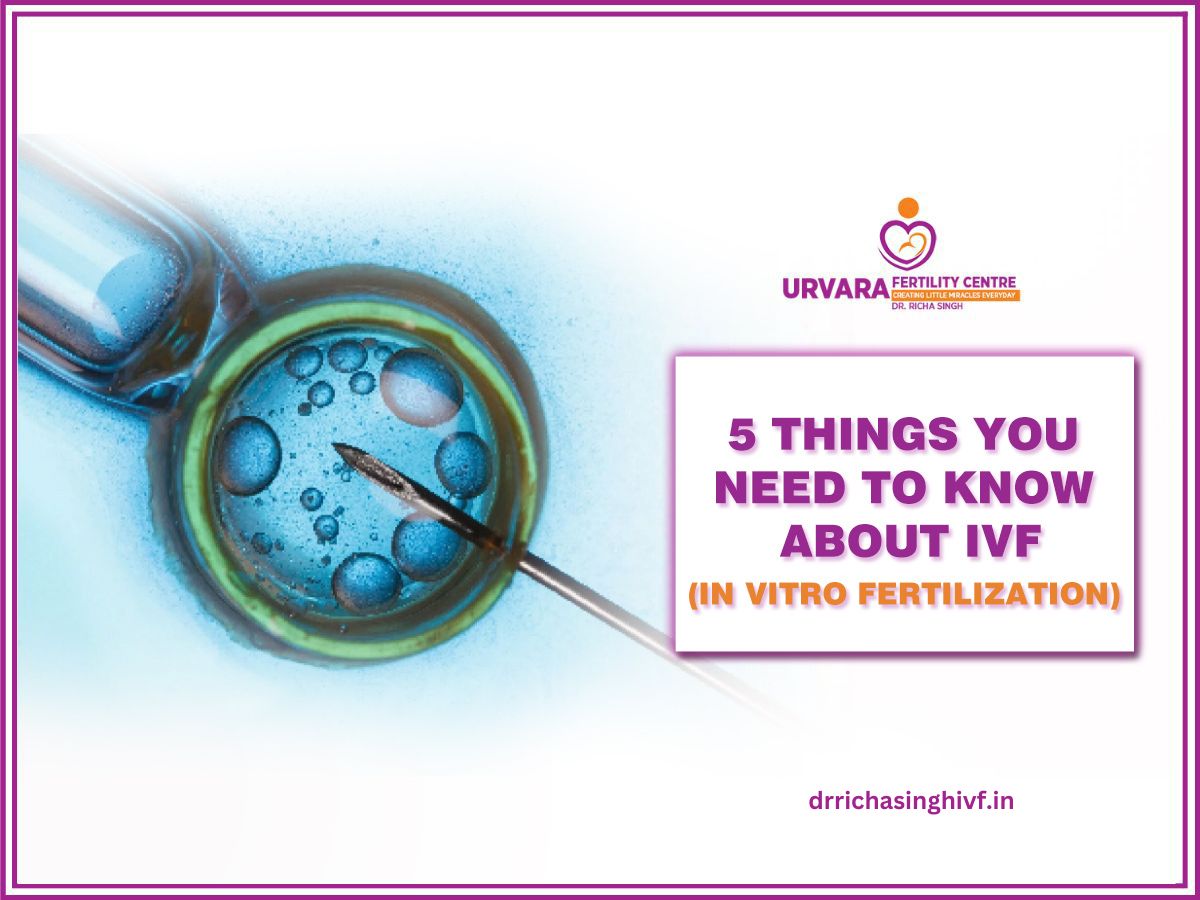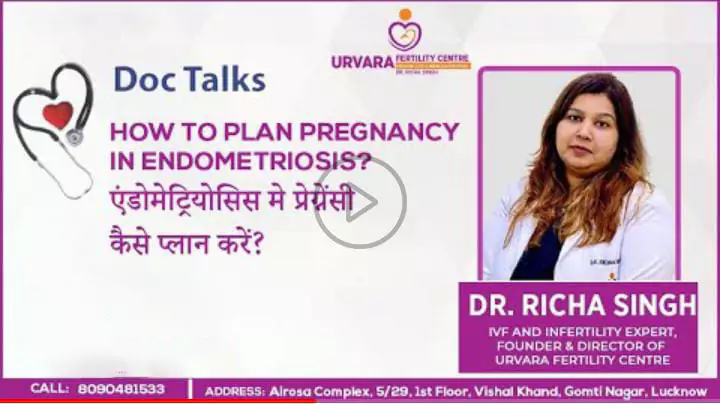5 Things You Need to Know About IVF
In vitro fertilization, or IVF, is a procedure that has helped many couples struggling with infertility to start their families. It involves fertilizing an egg outside the body and implanting the resulting embryo into the woman's uterus. Understanding the basics of IVF is essential for couples considering this fertility treatment. In this post, we will explore various aspects of IVF, from choosing the right clinic to the potential risks and outcomes. Understanding the basics of IVF, including the steps involved and the potential success rates, is essential for couples considering this fertility treatment.
The Importance of Choosing the Right IVF Clinic
Choosing the right IVF centre in lucknow is crucial for maximizing the chances of a successful outcome.
Factors to consider when selecting an IVF clinic include:
- Success rates: It is important to research and compare the success rates of different IVF clinics. Higher success rates indicate a higher likelihood of a successful pregnancy.
- Experience and expertise: The experience and expertise of the medical staff play a significant role in the success of IVF procedures. Look for clinics with highly qualified fertility specialists and embryologists.
- Availability of advanced technologies: Advanced technologies and procedures, such as genetic testing or blastocyst transfer, can improve the chances of a successful pregnancy.
It is important to have open and honest discussions with fertility specialists to ensure
you choose a clinic that meets your specific needs and expectations.
Remember, the choice of an IVF clinic can significantly impact your chances of success,
so take the time to make an informed decision.
Know The IVF Prucedure
The IVF procedure involves several steps that are carefully orchestrated to increase the chances of a successful pregnancy. These steps include:
- Ovarian Stimulation: This is the first step of the IVF procedure and involves taking hormonal medications and injections to stimulate the ovaries to produce multiple eggs instead of the usual one egg per cycle.
- Egg Retrieval:Once the eggs have matured, a minor surgical procedure called egg retrieval is performed to collect the eggs from the ovaries.
- Fertilization: The collected eggs are then fertilized with sperm in a laboratory setting. This can be done using conventional IVF (where the sperm and eggs are placed together in a petri dish) or using intracytoplasmic sperm injection (ICSI) where a single sperm is injected directly into the egg.
- Embryo Culture: The fertilized eggs, now called embryos, are cultured in a laboratory for 3-5 days to allow them to develop and grow.
- Embryo Transfer: The final step involves transferring one or more embryos into the woman's uterus using a thin catheter. This is typically done 3-5 days after fertilization.
It's important to note that not all embryos may result in a successful pregnancy, and sometimes multiple cycles of IVF may be needed to achieve the desired outcome. The entire IVF procedure is carefully monitored and guided by fertility specialists to maximize the chances of success.
Factors to Consider Before Starting IVF
There are several important factors to consider before starting IVF. These factors include:
- Financial Implications: IVF is not an expensive procedure now a days but charges do vary from clinic to clinic as they depend upon the quality of medications, injections,media,consumables. Couples should carefully consider the potential costs and financial implications of the treatment prior. It's essential to understand the expenses involved, including consultation fees, medications, and any additional procedures that may be required.
- Physical and Emotional Impact: Going through IVF can have physical and emotional effects on both partners. The fertility medications used during the treatment can cause side effects, and the emotional rollercoaster of the IVF journey can be challenging. It's crucial for couples to consider their ability to handle these aspects and be prepared for mentally and physically.
- Time Commitment: IVF does not requires a significant time commitment as all are day care procedures and no hospitalization is required. The treatment involves few visits to the fertility clinic for monitoring, and procedures. Couples don’t need to bother much and even working patients can easily manage.
- Expectations and Goals: It's important for couples to have open and honest discussions with their fertility specialist about their expectations and goals for IVF. Understanding the potential outcomes and success rates can help manage expectations and make informed decisions.
- Support System: Having a strong support system in place can make a significant difference during the IVF journey. This includes support from friends, family, and even professional counselors or support groups specializing in infertility. Couples should consider reaching out for support to help navigate the emotional and psychological challenges that may arise.
Success Rates and IVF Outcomes
Understanding the success rates and potential outcomes of IVF can help couples set realistic expectations and make informed decisions about their fertility treatment options. Factors that can influence IVF success rates include:
- The woman's age
- The quality of the embryos
- The fertility clinic's expertise
- The underlying cause of infertility
It's important to remember that while IVF can significantly improve the chances of conception, it may not guarantee a successful pregnancy in every case.
Potential Risks and Side Effects of IVF
Like any medical procedure, IVF carries some potential risks and side effects that couples should be aware of.
- Ovarian hyperstimulation syndrome: This condition occurs when the patients have high AMH or PCOS where ovaries become swollen and painful due to the fertility medication used to stimulate egg production. It can cause bloating, abdominal pain, and, in severe cases, fluid accumulation in the abdomen or chest. But with careful monitoring now a days chances of OHSS have lessend down.
- Multiple pregnancies: Due to the possibility of implanting multiple embryos, IVF increases the chances of having multiple pregnancies. However now a days with single blastocyst transfer chances of multiple pregnancies like triplets,quadraplets has reduced and stands only 20-30%.
- Ectopic pregnancy: In rare cases, the fertilized embryo implants outside the uterus, typically in the fallopian tubes. This can cause severe abdominal pain, internal bleeding, and may require surgical intervention to terminate the ectopic pregnancy.
Discussing these risks with a fertility specialist and understanding how to minimize them can help couples make informed decisions about their fertility treatment.
Conclusion
In vitro fertilization (IVF) is a complex and potentially life-changing fertility treatment that can offer hope to couples struggling with infertility. By understanding the basics of IVF, choosing the right clinic, and considering important factors before starting the procedure, couples can make informed decisions and increase their chances of success. It's important to be aware of the potential risks and side effects of IVF and seek emotional and psychological support throughout the process. With the right support and realistic expectations, IVF can provide a path towards parenthood for many couples.

